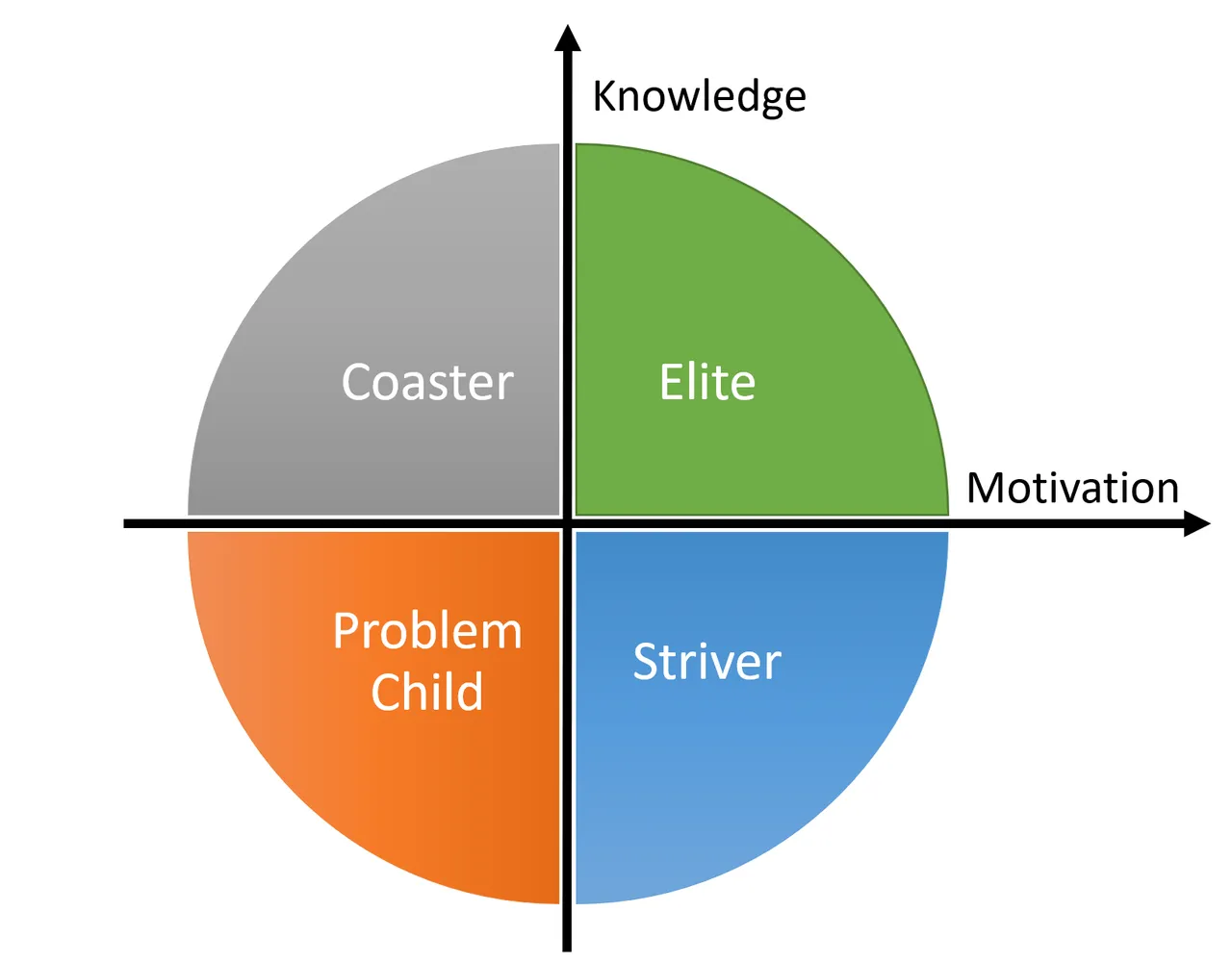
Many managers in business are bad at being managers. They have often been promoted into a role where they need to manage a team but have not necessarily been trained in managing. There is a famous British TV series called "The Office" where the manager mismanages all his team even though he thinks he is brilliant. Someone once said that all of us are promoted to our natural level of incompetence. That is, if you are good, you get promoted. If you are still good, you get promoted again. This keeps happening until you finally get promoted to a role that you are not good at and is beyond you. You then get stuck in that role performing badly.
So how do we avoid this?
One of the most important points, which I am going to cover today, is that management cannot be conducted in a one-size-fits-all approach. That is because we are all different. We have different needs and different levels of competency. We also have different levels of motivation.
For example, if you have a highly skilled expert in your team, you don't need to start lecturing them on how to do their job properly. They already know and need to be given some flexibility to just get on with things. Trying to manage them may come across as condescending and may even result in a lack of enthusiasm.
Knowledge and Motivation
One way to look at your team members is to analyse their individual knowledge and motivation. Where do you rank them? Once you have worked it out, plot them into the quadrants below.

Coaster
Someone who has all the knowledge to do the job right but is not motivated - is a Coaster. To manage these people, you don't need to teach them how to do the job - they already know that. Instead, use a form of indirect coaching. Ask lots of open questions to open them up and see why they are not motivated. You will then need to find ways to motivate them to get the best out of them in the job. They also need a bit of leadership. Inspire them with a vision and get them energised for the work.
Striver
A striver is someone who works hard and puts a ton of effort in. They just don't have sufficient knowledge or experience yet to perform the job well. To address this, then you need to apply some mentoring and perhaps some direct coaching. As a manager, you need to find a way of pushing your knowledge onto them (or from one of your other team members) because once they have the knowledge they will deliver.
Elite
This is where we want all our team members to be. They know what they are doing and they are highly motivated to get the job done. You don't need to spend much time managing them and if you do, it will probably be detrimental. They also don't need you to be an all inspiring leader - they are already putting all their effort in. If they are truly elite, all they really need is a bit of administrative management and then just let them crack on.
Problem Child
This is just what the title says. A problem child is someone who neither has the skill of the required motivation. You have two options. First, you carry out some quick and intensive corrective action to jolt them into one of the other quadrants. Or secondly, well you may just need to replace them with someone else. Quite often the staff member with no motivation and without sufficient knowledge to do the job - is going to really bring you down.
Conclusion
Management isn't a one-size-fits-all and this is one type of classification that you can apply. There are others too but I find this one is important because it immediately helps you think of the type of management someone needs to perform better in their role.

